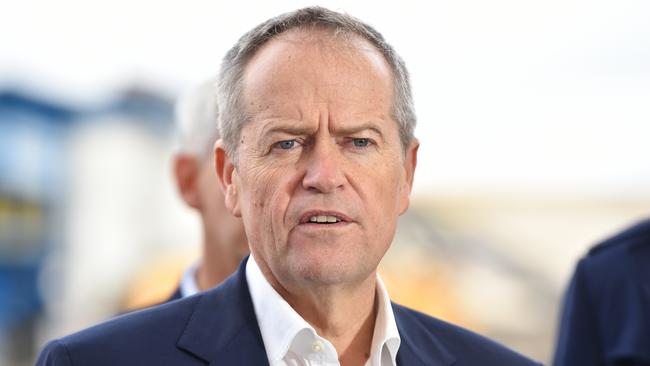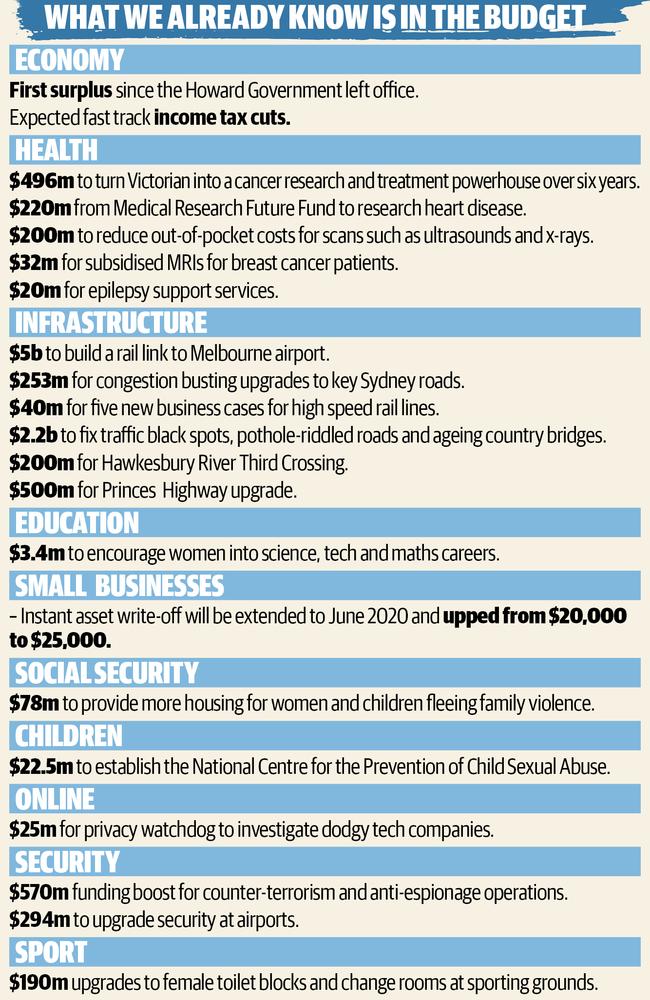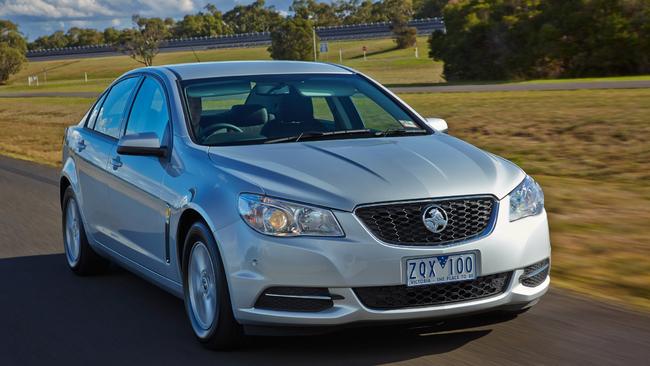Bill Shorten calls for half of all new cars to be electric by 2030
Bill Shorten has announced a radical policy to promote electric cars across the country, calling for 50 per cent of all new vehicles sold to be powered by electricity in just over a decade’s time.
All new housing estates, Commonwealth buildings and federal road upgrades would be forced to include electric car charging stations under a radical Bill Shorten policy to promote electric vehicles across the nation.
The plan also calls for half of all new cars sold to be powered by electricity by 2030 — with government fleets forced to adopt electric cars even sooner, having a 2025 deadline of 50 per cent electric.
Another plank of the policy — forcing all new vehicles to cut the amount of carbon dioxide emitted from their exhaust pipes — is expected to push up new car prices by $1500. But the promoters of the green scheme to slash CO2 emissions in passenger cars argue fuel savings more than offset the significant costs to consumers.

MORE NEWS
Shock video shows crash boy flying through air
Two men arrested after violent CBD brawl
Rock risk: Commuters warned of major delays
Light vehicles account for just 10 per cent of Australia’s greenhouse gas emissions and the nation only accounts for 1.3 per cent of the world’s emissions.
The Shorten green plan would mandate that all light vehicles are restricted to 105g CO2/km, “which is consistent with Climate Change Authority Advice (CCA)”.
The CCA website says the current average level of the nation’s light vehicle fleet is 192g of carbon dioxide per km and that moving to 105g CO2 would drive up prices by $1500 in 2025. But it adds “this would be more than offset by fuel savings of $830 in the first year” and $8500 over a car’s lifetime’’.
Family cars such as a 2019 Holden Commodore Evoke sedan currently emit about 193g C02/km a year, while a Mitsubishi Pajero 4WD is about 240g CO2/km a year.
Mr Shorten says rather than apply the strict emission standard to car manufacturers, he would force car retailers to meet “average emissions standards”.

“This will allow retailers to meet the standards by offsetting high emissions car sales with low or zero emissions car sales, such as electric vehicles,” his policy states.
Critics of the push for electric cars have argued Australia’s long distances make them unsuitable for driving outside of cities. But under the ALP’s first “National Electric Vehicle” policy, Labor would “require all federally-funded road upgrades to incorporate electric vehicle charging infrastructure”.
The radical plan says Labor would work with the states to “ensure new and refurbished commercial and residential developments include electric vehicle charging capacity” and “promote national standards for electric vehicle charging infrastructure, and ensure investment in public charging stations meet these standards”.

“Labor will work towards requiring all Commonwealth owned-and-leased office buildings to include the provision of charging infrastructure where appropriate,” it says.
According to Mr Shorten, setting a 50 per cent new car sales target by 2030 for electric vehicles would “deliver more affordable electric vehicles into the Australian market”. He says it would also “drive the switch to electric vehicles, reducing their cost, create thousands of jobs” and cut pollution.
Under the plan, 50 per cent of government fleet vehicles would be electric for new purchases and leases by 2025. Labor would also give businesses a 20 per cent upfront depreciation for electric vehicles valued at more than $20,000 for their fleets.
Electric cars currently on the market in Australia can take more than four hours to recharge their batteries on standard power. The Hyundai IONIQ EV is the cheapest at around $50,000. It travels 230km between recharges.



